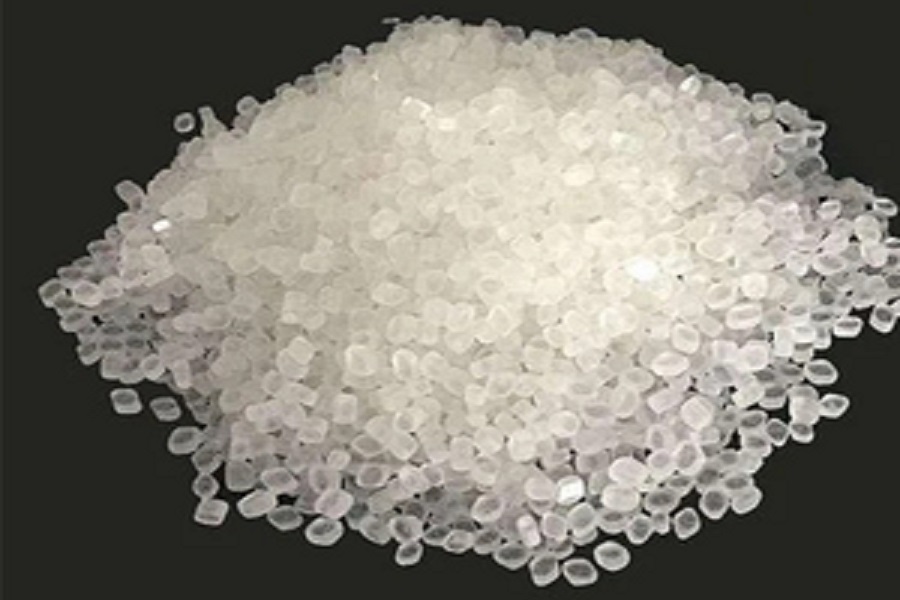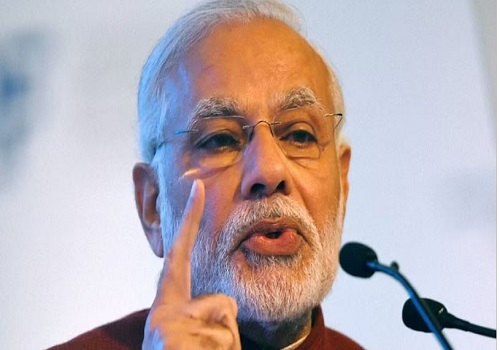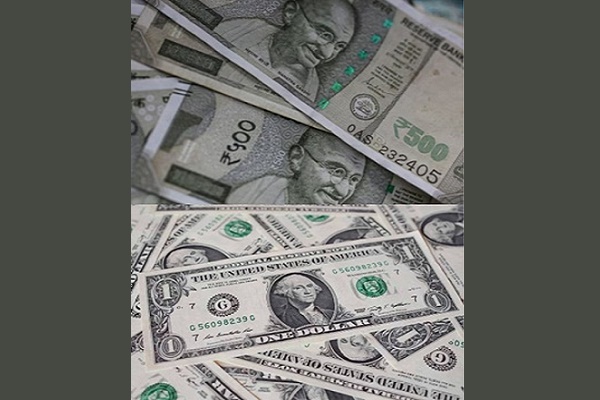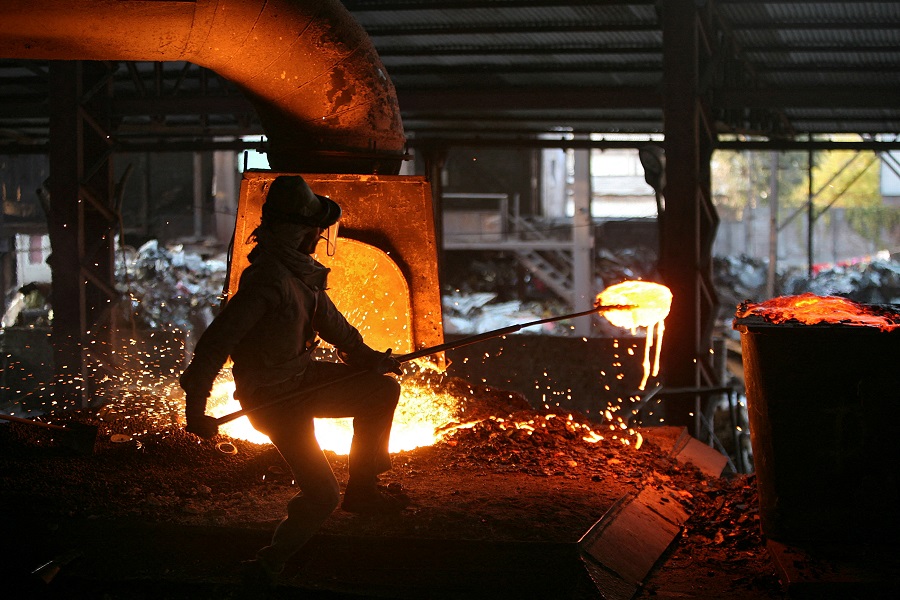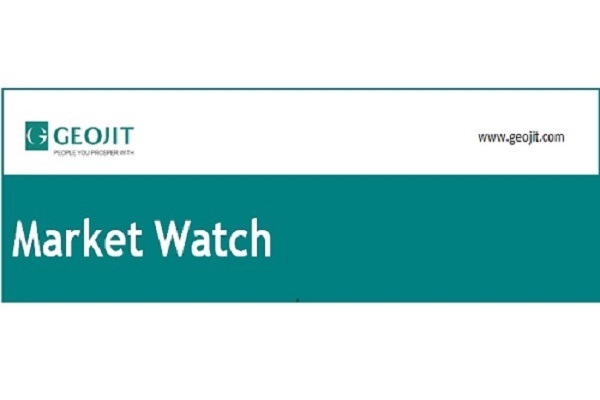Key gauges end sharply lower on Monday

Key gauges end sharply lower on Monday
Indian equity benchmarks ended sharply lower with losses of over one and half percent on Monday, as a record jump in the Covid-19 cases in the country which led to lockdown-like restrictions in the economically important state of Maharashtra spooked investors. Markets made negative start and enlarged their losses in morning deals, as the sentiments remained down-beat with ratings agency Ind-Ra stating that further surge in global commodity prices will have serious implications for India's economy which is still struggling to come out of the Covid-19 impact. It also stated a higher retail inflation not accompanied by a commensurate increase in wage growth will adversely impact the consumption demand and in turn investment revival in the economy.
Indian equities continued to witness bloodbath in afternoon session, as the survey report showed Indian manufacturing activity eased in the month of March but it remains above the boom-or-bust line of 50 that separates expansion from contraction, as firms scaled up production and input buying in line with another upturn in sales. As per the report, the Nikkei India Manufacturing Purchasing Managers’ Index (PMI) - a composite single-figure indicator of manufacturing performance - stood at 55.4 in March as against 57.5 in February. Sentiments also remained dampened as Reserve Bank of India (RBI) data showed that the country's foreign exchange reserves declined by $2.986 billion to reach $579.285 billion in the week ended March 26. In the previous week ended March 19, the forex kitty had increased by $233 million to $582.271 billion. It had touched a record high of $590.185 billion in the week ended January 29, 2021. The fall in reserves was on account of a decrease in foreign currency assets (FCA), a major component of the overall reserves.
However, markets managed to cut some losses in final hour of trade, as traders took some support with the finance ministry's statement that Goods and Services Tax (GST) collections remained above the Rs 1-lakh-crore mark for the sixth month in a row in March 2021, rising 27 per cent annually to record Rs 1.23 lakh crore. Some optimism also came with domestic credit rating agency Crisil stating that improvement in economic climate and policy measures have helped in a sharp reversal in the ratio of upgrades to downgrades of company debt and led to expectations of the same being sustained going forward. The credit ratio, which denotes the number of firms upgraded for each downgrade, improved to 1.33 in the second half of the financial year 2021, from a decadal low of 0.54 in the preceding half, while the debt-rated credit ratio which acts by the quantum of loans outstanding improved to 1.26 from 0.52.
On the flip side, European markets were closed due to Easter Monday. Asian markets ended mostly higher on Monday following broadly positive cues from Wall Street on upbeat jobs and manufacturing data. Traders are also upbeat about a stimulus-fuelled global economic recovery after US President Joe Biden's speech regarding his $2 trillion infrastructure and economic recovery plan. However, worries about rising coronavirus cases and extension of lockdown restrictions limited market gains. Back home, on the sectoral front, banking stocks were buzzing as bank credit to medium-sized firms rose 21 per cent YoY in February even as a contraction (-1.5 per cent) in loans to large industrial units dragged credit disbursement to industry. In January this year, loans to large units were in the contraction zone (-2.5 per cent), while for mid-sized entities it was 19.1.
Finally, the BSE Sensex fell 870.51 points or 1.74% to 49,159.32, while the CNX Nifty was down by 229.55 points or 1.54% to 14,637.80.
The BSE Sensex touched high and low of 50,028.67 and 48,580.80, respectively. There were 6 stocks advancing against 24 stocks declining on the index.
The broader indices ended in red; the BSE Mid cap index fell 1.13%, while Small cap index was down by 1.08%.
The top gaining sectoral indices on the BSE were IT up by 1.96%, TECK up by 1.67%, Metal up by 0.96%, Telecom up by 0.50% and Healthcare up by 0.20% while, Realty down by 3.62%, Bankex down by 3.47%, Finance down by 3.26%, Auto down by 2.63%, Consumer discretionary down by 2.30% were the top losing indices on BSE.
The top gainers on the Sensex were HCL Technologies up by 3.08%, TCS up by 2.32%, Infosys up by 1.79%, Bharti Airtel up by 1.40% and Tech Mahindra up by 0.55%. On the flip side, Bajaj Finance down by 5.81%, Indusind Bank down by 5.64%, SBI down by 4.56%, Mahindra & Mahindra down by 4.17% and Axis Bank down by 3.93% were the top losers.
Meanwhile, ratings agency Ind-Ra has said further surge in global commodity prices will have serious implications for India's economy which is still struggling to come out of the Covid-19 impact. It stated a higher retail inflation not accompanied by a commensurate increase in wage growth will adversely impact the consumption demand and in turn investment revival in the economy.
It mentioned though a spike in global agricultural commodity prices could benefit India, it may not move the needle favourably because India, despite the world's biggest exporter of Basmati rice, exported just $6.59 billion worth of cereals and imported vegetable oil and pulses worth $9.66 billion and $1.44 billion, respectively, in FY20. On the other hand, India's import bill on oil, coal and nonferrous metals was $129.86 billion, $22.45 billion and $13.14 billion, respectively.
According to the agency, a faster-than-expected recovery in demand, the stimulus measures announced by the US, the roll out of Covid-19 vaccine and ultra-low interest rates are fuelling the surge in commodity prices. Consequently, energy commodity prices over the past six months have increased by 55.4 per cent, the increase in non-energy commodity prices is 19.3 per cent. Among the major non-energy subgroups, agricultural commodities rose by 16 per cent, fertilisers 30.2 per cent and metals and minerals by 25.1 per cent.
The CNX Nifty traded in a range of 14,849.85 and 14,459.50. There were 13 stocks advancing against 37 stock declining on the index.
The top gainers on Nifty were HCL Technologies up by 3.19%, TCS up by 2.40%, Wipro up by 2.28%, Britannia Industries up by 2.25% and Infosys down by 2.15%. On the flip side, Bajaj Finance down by 5.74%, Indusind Bank down by 5.54%, SBI down by 4.49%, Eicher Motors down by 4.26% and Mahindra & Mahindra down by 3.92% were the top losers.
Asian markets ended mostly higher on Monday, though some of the markets were closed for Easter Monday holiday. Stock markets in China, Taiwan and Hong Kong were closed today. Sentiments soared with the unexpectedly strong job and manufacturing data from US, pointing for a faster global economic recovery. Rise in bond yields also triggered positive economic outlook. Crude oil rates fell after OPEC+ agreed last week to gradually ease some of its production cuts between May and July. Banking and financial sectors stocks were the major gainers in the session. Japan's Nikkei finished higher for the third session in a row, with a weaker yen lifting more exports and on optimism over economic recovery with the US president Joe Biden's $2 trillion infrastructure and economic recovery plans. However some of the gains were capped as Japan's service activity dipped for the month of March.
Above views are of the author and not of the website kindly read disclaimer


